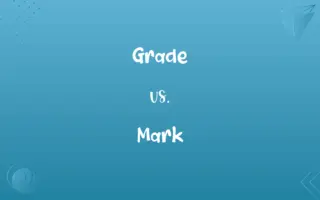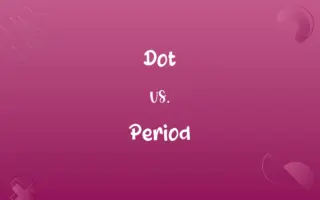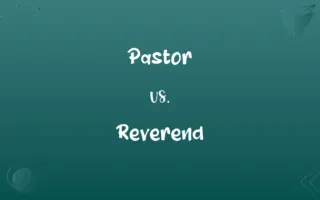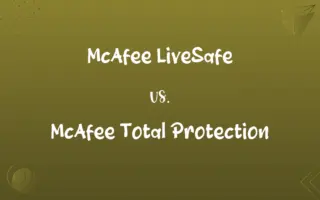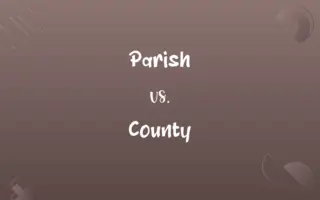Observation vs. Watching: Know the Difference

By Shumaila Saeed & Hifza Nasir || Updated on March 3, 2024
Observation involves careful, systematic study or monitoring, often for scientific purposes, while watching is simply the act of looking at something for any reason.
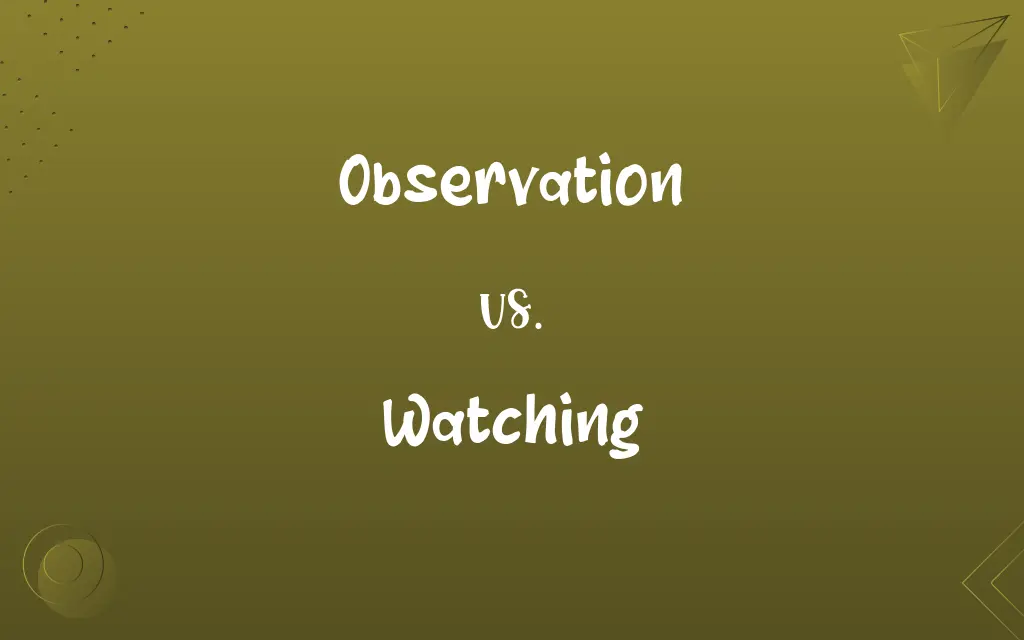
Key Differences
Observation is a deliberate, focused process that involves not only looking but also analyzing and drawing conclusions. It's a critical component of scientific research, where data must be gathered methodically to test hypotheses or understand phenomena. Watching, on the other hand, can be casual or passive, such as watching television or observing people without a specific goal in mind. This distinction highlights observation's purposeful nature compared to the more general activity of watching.
Shumaila Saeed
Mar 03, 2024
While observation often requires the use of specialized tools or techniques, such as microscopes in biology or telescopes in astronomy, to gather data or insights, watching typically does not involve any special equipment. Watching is something that can be done with the naked eye and without any preparatory steps, emphasizing the simplicity and immediacy of the act.
Hifza Nasir
Mar 03, 2024
Observation also implies a level of detachment and objectivity, aiming to minimize bias or interference with the subject being observed. In scientific contexts, this means carefully controlling conditions and recording data accurately. Watching, however, can be subjective and influenced by personal feelings or interpretations, making it less reliable for systematic study or analysis.
Shumaila Saeed
Mar 03, 2024
In educational settings, observation is a technique used to enhance learning and understanding, where students are encouraged to notice details, patterns, and changes to develop critical thinking skills. Watching, while it can also be educational, is more often associated with entertainment or leisure activities, where the goal is enjoyment rather than learning or discovery.
Hifza Nasir
Mar 03, 2024
The outcomes of observation versus watching differ significantly. Observation aims to produce knowledge, insights, or empirical data that can contribute to understanding a specific field or question. Watching, while it can lead to informal learning or personal enjoyment, does not typically result in the generation of systematic knowledge or data.
Shumaila Saeed
Mar 03, 2024
ADVERTISEMENT
Comparison Chart
Tools/Techniques
Often involves specialized equipment
No special tools required
Shumaila Saeed
Mar 03, 2024
Outcome
Generates knowledge, data, insights
Leads to personal enjoyment or informal learning
Shumaila Saeed
Mar 03, 2024
ADVERTISEMENT
Observation and Watching Definitions
Observation
Careful monitoring with a specific purpose.
Observation of wildlife behavior provides insights into their social structures.
Shumaila Saeed
Mar 03, 2024
Watching
Influenced by personal feelings or preferences.
Watching sports is often guided by loyalty to a team.
Shumaila Saeed
Mar 03, 2024
Observation
Crucial for hypothesis testing and research.
Observation is the first step in the scientific method, leading to question formulation.
Shumaila Saeed
Mar 03, 2024
Watching
Requires no equipment beyond the human eye.
People enjoy watching birds in their backyard without binoculars.
Shumaila Saeed
Mar 03, 2024
Observation
Often requires equipment for detailed examination.
Astronomers use telescopes for the observation of distant galaxies.
Dua Fatima
Mar 03, 2024
ADVERTISEMENT
Watching
Looking at something without a specific focus.
Watching a movie for entertainment.
Dua Fatima
Mar 03, 2024
Observation
Involves neutral, unbiased data collection.
Clinical observation in psychology seeks to understand patient behavior without judgment.
Hifza Nasir
Mar 03, 2024
Watching
Associated with relaxation and enjoyment.
Watching the sunset is a popular leisure activity.
Shumaila Saeed
Mar 03, 2024
Observation
Enhances learning through detailed examination.
Observation of chemical reactions helps students understand scientific principles.
Hifza Nasir
Mar 03, 2024
Watching
Can lead to informal knowledge acquisition.
Watching a documentary may provide information but lacks the systematic approach of observation.
Shumaila Saeed
Mar 03, 2024
Observation
The act or process of perceiving something, such as a phenomenon, often by means of an instrument, and making a record of the resulting information.
Shumaila Saeed
Oct 19, 2023
Watching
To look and wait expectantly or in anticipation
Watch for an opportunity.
Shumaila Saeed
Oct 19, 2023
Observation
The result or record of such an act or process
A meteorological observation.
Shumaila Saeed
Oct 19, 2023
Observation
An inference, judgment, or remark that is made by observing
Made some sharp observations about the movie.
Shumaila Saeed
Oct 19, 2023
Watching
To stay awake at night while serving as a guard, sentinel, or watcher.
Shumaila Saeed
Oct 19, 2023
Observation
The act of observing, and the fact of being observed (see observance)
Shumaila Saeed
Oct 19, 2023
Observation
The act of noting and recording some event; or the record of such noting.
Shumaila Saeed
Oct 19, 2023
Watching
To look or observe attentively or carefully; be closely observant
Watching for trail markers.
Shumaila Saeed
Oct 19, 2023
Watching
To look at steadily; observe carefully or continuously
Watch a parade.
Shumaila Saeed
Oct 19, 2023
Observation
Performance of what is prescribed; adherence in practice; observance.
Shumaila Saeed
Oct 19, 2023
Watching
To guard, keep surveillance on, or spy on
Watched the prisoner all day.
Watched the house to see who came and went.
Shumaila Saeed
Oct 19, 2023
Watching
To observe the course of mentally; keep up on or informed about
Watch the price of gold.
Shumaila Saeed
Oct 19, 2023
Observation
Philosophically as: the phenomenal presence of human being existence.
Shumaila Saeed
Oct 19, 2023
Watching
To pay close attention to or be careful about, especially with regard to propriety
Watched his manners.
Shumaila Saeed
Oct 19, 2023
Observation
The act or the faculty of observing or taking notice; the act of seeing, or of fixing the mind upon, anything.
My observation, which very seldom lies.
Shumaila Saeed
Oct 19, 2023
Watching
To tend or take care of (children or a flock of sheep, for example).
Shumaila Saeed
Oct 19, 2023
Observation
An expression of an opinion or judgment upon what one has observed; a remark.
To observations which ourselves we makeWe grow more partial for the observer's sake.
Shumaila Saeed
Oct 19, 2023
Observation
Performance of what is prescribed; adherence in practice; observance.
We are to procure dispensation or leave to omit the observation of it in such circumstances.
Shumaila Saeed
Oct 19, 2023
Observation
Facts learned by observing;
He reported his observations to the mayor
Shumaila Saeed
Oct 19, 2023
Observation
The result of an act, or of acts, of observing; view; reflection; conclusion; judgment.
In matters of human prudence, we shall find the greatest advantage in making wise observations on our conduct.
Shumaila Saeed
Oct 19, 2023
Observation
The act of recognizing and noting some fact or occurrence in nature, as an aurora, a corona, or the structure of an animal.
Shumaila Saeed
Oct 19, 2023
Observation
The act of noticing or paying attention;
He escaped the notice of the police
Shumaila Saeed
Oct 19, 2023
Repeatedly Asked Queries
Can watching turn into observation?
Yes, watching can turn into observation if it becomes focused, systematic, and aims to gather information or understand something in depth.
Hifza Nasir
Mar 03, 2024
Is observation always scientific?
While observation is a key component of the scientific method, it can also be used in non-scientific contexts, such as art or education, where careful study and attention to detail are valuable.
Shumaila Saeed
Mar 03, 2024
Can observation involve the senses other than sight?
Yes, observation can involve all senses, depending on the context. For example, scientists might observe the sound of bird calls or the texture of a mineral.
Shumaila Saeed
Mar 03, 2024
Does watching require attention?
Watching can vary in the level of attention given, from passive glancing to focused attention, but it generally involves less systematic thought and analysis than observation.
Shumaila Saeed
Mar 03, 2024
How do tools enhance observation?
Tools like microscopes or telescopes extend human capabilities, allowing observers to see details and phenomena that are not visible to the naked eye, thereby enhancing the quality and scope of data collected.
Shumaila Saeed
Mar 03, 2024
What is the primary difference between observation and watching?
The primary difference is that observation is a systematic, objective process aimed at gathering data or insights, while watching is a more casual act of looking at something, often for entertainment or general interest.
Hifza Nasir
Mar 03, 2024
Why is objectivity important in observation?
Objectivity ensures that the data collected is accurate and unbiased, which is crucial for reliable research findings and conclusions.
Shumaila Saeed
Mar 03, 2024
Is there a place for subjectivity in observation?
While observation aims for objectivity, researchers' perspectives and interpretations can influence the framing of questions and analysis of data, though this subjectivity is carefully managed through scientific methodology.
Dua Fatima
Mar 03, 2024
How does the context change the meaning of watching?
The context can greatly influence the intent and outcome of watching, from leisurely viewing a play for enjoyment to closely watching a demonstration for learning purposes.
Shumaila Saeed
Mar 03, 2024
What skills can observation develop?
Observation can develop critical thinking, analytical skills, attention to detail, and the ability to notice patterns or anomalies, which are valuable in various fields of study and aspects of life.
Shumaila Saeed
Mar 03, 2024
Share this page
Link for your blog / website
HTML
Link to share via messenger
About Author
Written by
Shumaila SaeedShumaila Saeed, an expert content creator with 6 years of experience, specializes in distilling complex topics into easily digestible comparisons, shining a light on the nuances that both inform and educate readers with clarity and accuracy.
Co-written by
Hifza Nasir